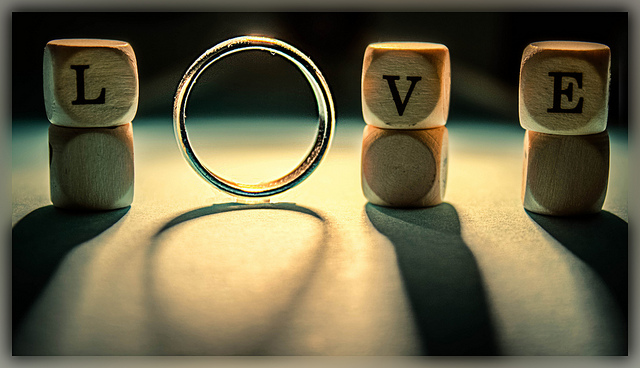For some reason, we all believe that true love, good sex, and a stable relationship with a significant other are the real deal, the only deal, and the no-fail recipe for eternal happiness—right?
Well, let me burst that bubble: They have nothing to do with each other.
Sex is for procreation.
A relationship is for support and security.
Love is a choice.
The idea that the three should come in a package deal is a human construct, an invention of the human mind, an ancient convention of society, one driven by religious dogma, and sustained by law in many countries.
We all believe it, because even before we can read or write, we hear the fairytales, and we see the cartoons with princes and princesses falling into each others’ arms, with the promise that they live happily ever after (not a word about sex here, of course).
We may go to church and learn that we should not have sex before marriage, nor outside of marriage.
Growing up, we may see the struggle of a heart-rending breakup between parents, trying to avoid the shame of ending a marriage that was supposed to be forever.
We may learn from the whispered fights behind closed doors late at night, how one parent is having an affair, but for the sake of appearances, it is all hushed up or denied in an attempt to continue the false story of everlasting love.
We read romance novels, listen to loads of song lyrics about love, and watch endless TV shows and movies about love. And it’s almost always about how the love-relationship should be started, maintained, repaired, or restarted after a breakup, as if having a relationship is the main goal in life.
Often, the newly found or rediscovered love gets celebrated with a passionate romp between the sheets (usually, there are sheets for the sake of modesty), thus confirming our belief that sex belongs to love, and love is to be found. If not, there will be no happiness…period.
Once we’re teenagers—and the hormones kick in—we take our first stumbling steps into sexuality. As I said, sex is for procreation. All those feel-good hormones in our bodies that come with it? They’re only there to make sure that we keep doing it.
Imagine if sex was as exciting as polishing shoes. That would be the end of the human race pretty soon, wouldn’t it? (And, if polishing shoes would lead to orgasm, nobody would buy tennis shoes anymore, I’m quite sure.)
We have our orgasm, get addicted to it, and want it again and again—mother nature’s trick to ensure multiple chances for conception and the continuation of our species. That’s what sex is about. It’s got nothing to do with love, but society has made us believe that, almost from the day we were born.
Don’t get me wrong, we can love someone and have wonderful sex with them, and the fact that we love them might actually make it more amazing.
But—how many of us have not fallen into that trap of jumping into the sack on a first or second date, having a good time, and then thinking we’re in love and that this is our life partner? (Guilty, multiple times.) Took me a few decades to figure out that’s not how it works, darn!)
What’s the deal with steady relationships and marriage then, you may ask? It’s another construct of society, of human thinking, of dogma. Plenty of tribes don’t have marriage as an institution, or they allow marriage to multiple wives. It’s about the strength of the tribe. The few available strong and healthy men need to mate with many women to secure continuation of the tribe. The women collectively take care of all the children. The men take care of the tribe. The love of these people is for their tribe, for all the children who are the future of the tribe, for all the women who bear the children, and for all the men who protect them.
Marriage, as a tradition, goes back quite far in history. The ancient Israelites and Egyptians already used a form of marriage, and so did the ancient Greek and Roman societies. Often, there was an economic or social reason for a marriage—to ensure the family fortune, expand property or good business relations between families, or to crank up status. The tradition of dowries confirms that marriage can be just a transaction and not necessarily based on love.

Thanks to Christianity, Western society has made marriage between man and woman into a sacred bond, which is supposed to last “until death doth part us.” That might have worked in times when life expectancy was at a 35-year average—but in these days, that promise becomes a proper challenge. Sex was supposed to only happen within the bond of marriage, and children should only be born in wedlock. For centuries, especially under the yoke of Christianity, being a “bastard child” was a guarantee for a miserable life as an outcast.
Once countries started to implement social-security systems, pensions, life-insurance policies, and other benefits, marriage became the prerequisite for spouses to have a right to these. Marriage became again an economic construct, reinforced by federal laws. In some countries, marriage is no longer required, but a legal registration of a relationship is still necessary to receive our partner’s benefits.
So, sex was tied into marriage, and marriage was supposed to be for love, and it all would make us “happy ever after” (until death do us part). That’s how all three ended up in this triangular construct—which, as we all know, is anything but perfect. In fact, for a lot of us, it was never meant to be.
In modern times, sex outside of a steady relationship has become more accepted, so some of us are at least getting that. But, how many secretly still hope that the good sex with a random partner will eventually result in lasting love? We still believe that that’s what it’s all about.
We struggle, because we all want to believe in that false triumvirate that we should find love with a partner, forever, and that it should include good sex. (We even start to doubt the value of the relationship when the sex gets less fiery.) Since hardly any of us will be meeting all these requirements (“forever” is the toughest, right?), we all feel unhappy, unfulfilled, or downright miserable in our failure to achieve this universal, but very unrealistic, dream.
It may be time to let go of that fixed idea that they have to come as a package deal.
The only way to do that is to let go of the idea that love is to be found in someone else—in another person. Because as long as another person is thought to be the main source of love for us, we want them to stay with us all the time—hence the need for a relationship. Relationships or marriages are actually contracts that guarantees us a lifetime supply of love, right? I think divorce lawyers easily will prove me wrong on that one.
The moment we learn that love does not come from outside, but is found within, the whole frantic search for that life partner drops away. Ah, what relief!
Now, we can just enjoy the good company and awesome sex without looking for the ties. Nothing is a more liberating life experience than learning we can love ourselves and give ourselves all the love we need to feel whole and to thrive in life.
If we look at nature, there is always a movement toward growth, abundance, and the continuation of life. Even death and demise helps life continue, since other organisms thrive on the dead matter. In a way, it is all positive energy, which we could call a love for life.
This universal energy is freely available to tap into at any moment. It’s a love that we can choose to feel and share, that is not conditional and not attached to a person.
What about making love a lifestyle, an attitude, the beginning and ending and reason of everything we do?
What about intrinsic happiness, bubbling up from a source within us for no particular reason?
What about love that’s based on contentment with life—found in the small things, in our own talents, in being of service?
That love has nothing to do with relationships—and even less with sex.
The moment we let go of the fixation of love that’s only to be found with someone else in a steady relationship, we create space for a completely different love story. It’s the story of choice. We can choose love.
A choice to love ourselves, a choice to be happy with ourselves, a choice to always be there for ourselves.
It also can be our choice to love one particular person as our partner, without the need to be loved in return, because we have love inside. There is a powerful difference between choosing to be with someone, instead of needing that person to stay with us and provide us with love and sex, in order for us to feel happy.
This love story is for everyone and includes everyone. The moment we start with love for and within ourselves, we can learn to accept ourselves with all our flaws, quirks, mistakes, imperfections, bad habits, lame jokes, and that downy mustache too.
The beauty of this love is that we have it within, and we can give freely from it. The giving of love is a thousand times more satisfying than the receiving of it.
When we are capable of loving ourselves completely, it will become impossible not to love nearly everybody else, every being on this planet. They all come with flaws, quirks, and odd habits. But, you know what? They are all lovable, and they all struggle with stuff just like we do.
~
Relephant:
Romanticitis: How Romantic Love Makes us Unhappy.
Sex, Relationships, Love & Sex Again.
~
Author: Leontien Reedijk
Image: Flickr/Neto Baldo; Flickr/Dennis Skley
Editor: Yoli Ramazzina
Copy Editor: Callie Rushton
Social Editor: Travis May












Read 1 comment and reply